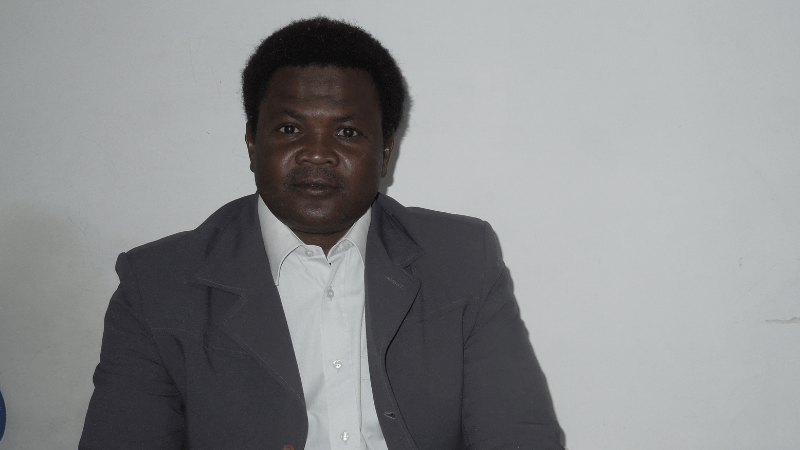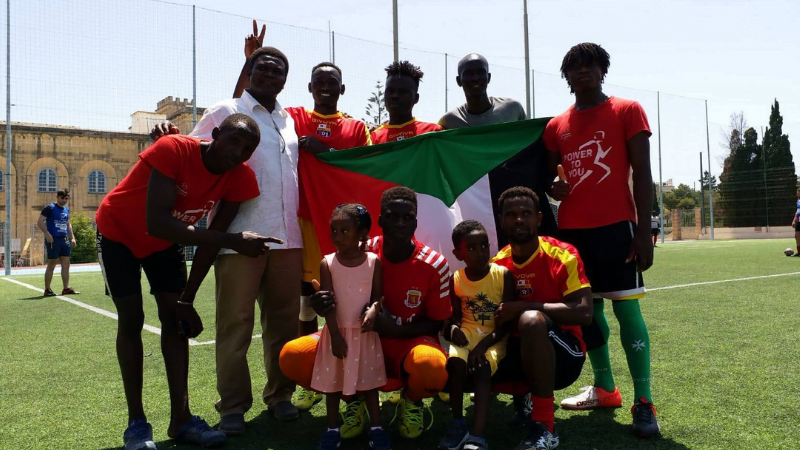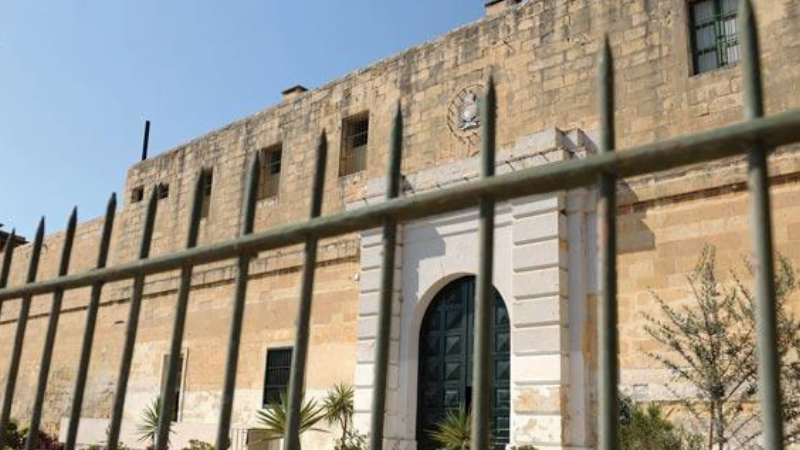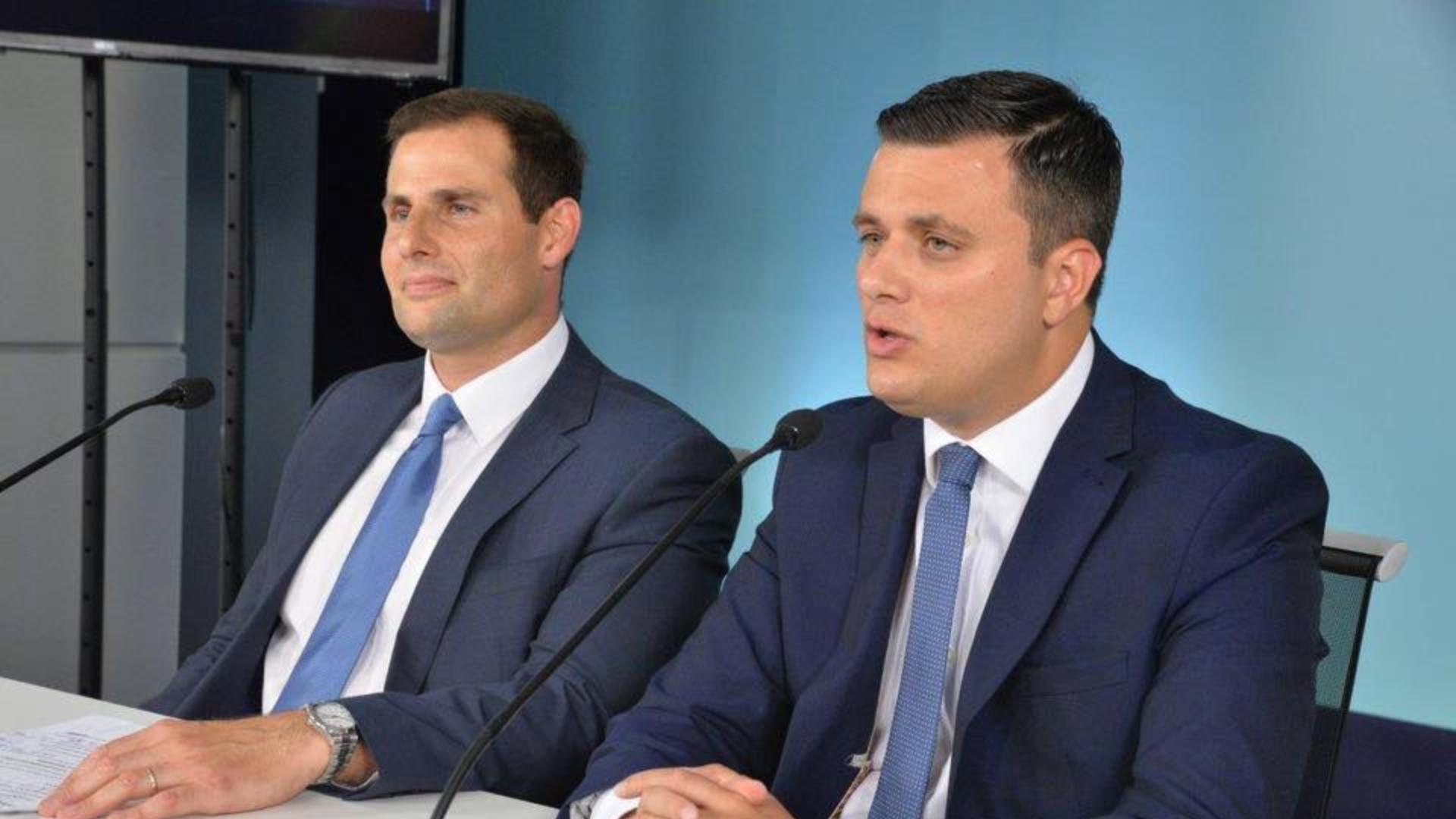One of the leaders of Malta’s community for Sudanese migrants has spoken up about how migrants in prison were subjected to racist treatment, a vacuum of information about their prospects and the way in which they’re subjected to trauma from the minute they set foot on the island.
Abbass Mussa Jameah, who has been living in Malta for years and helped set up an NGO for his community in 2015, spoke to The Shift about the number of migrants caught up in Malta’s prison system over passport fraud.
In January, an article published by MaltaToday showed how 443 people were sentenced to prison for attempting to use fake passports over the course of two years. Almost half of those cases involved Sudanese people; standing at 212 cases, it was by far the biggest demographic in prison last year.
Jameah spoke to many Sudanese people who were caught up in these hundreds of cases, along with three people who were sent to prison with 104 other people who were arrested in the aftermath of the Ħal Far riots of 2019.
“The treatment from security and police in prison is not good; the migrants are taken to court repeatedly with the magistrates delaying the decision for another time. People become very confused, angry and tense in this situation,” Jameah said.
“None of them know anything about what’s happening. In the detention centre, you know you have six months. In prison, you don’t know what’s going on. Maybe there is trauma and fear, because some people, especially younger ones, would be finding themselves with criminal people in prison for the first time in their lives,” Jameah continued.
“All of this makes people desperate, people don’t want to go from prison to prison, from detention centre to open centre to the prison. They want to work, learn, marry, have a house and start their lives like other people,” he added.

Abbass Mussa Jameah
Jameah explained that ex-prisoners in the Sudanese community still did not feel safe speaking directly to media outlets about the ordeals they’ve seen and the trauma they’ve endured.
“They become scared of speaking about what they experienced, especially with someone Maltese. When you meet somebody who came out of prison, they don’t trust you. They trust me because I am Sudanese; but, in their minds, Maltese people are like those security guards who treat them badly,” Jameah said.
“These people will never speak frankly with you because of this. Racism from Maltese people creates racism in Sudanese people. They experienced a lot of racism in prison from people around them, every day. It is an awful situation, there’s a lot of abusive language,” he added.
Jameah also spoke of the three people who had detailed their experiences in prison after being swept up in the aftermath of the riots in 2019, in which migrants had damaged premises, set off fires and assaulted staff members. All of the migrants who spoke to Jameah about the whole affair claimed that the riot was started by a handful of people.
“The three people who I spoke to who were imprisoned after the Ħal Far riots experienced a lot of racism. They don’t understand the local languages but they felt the hate in the eyes of the guards when they were being yelled at and told what to do and where to go,” Jameah said.
Jameah corroborated accounts previously heard by journalists at The Shift detailing how some of the migrants who had been accused of involvement in the riots at Ħal Far had suffered severe physical abuse both during the riots and when they were sent to prison.
The migrants who Jameah referred to also indirectly corroborated accounts from Maltese prisoners who experienced various forms of physical, verbal and emotional abuse within Corradino’s walls.
“One young man who was imprisoned because of the riots at Ħal Far, now doesn’t talk. He uses his phone a lot, sometimes he sleeps, sometimes he goes out and comes back,” Jameah said.
“I try to talk with him but so far, he’s given me very little. He just says prison is very bad, and doesn’t give a lot of details,” he added.

Abbass among a team of young Sudanese men participating in an anti-racism football tournament organised by Moviment Graffitti in 2019. Photo: Sudanese community in Malta
‘Suffering from day one’
Jameah highlighted how “migrants who come to Malta start experiencing suffering from day one”, experiencing cramped quarters, deprivation of basics such as information about their future as well as a lack of opportunities to work, learn and live. Last year, Malta’s migrant centres were described as “inhumane and illegal” in a Council of Europe report.
The community’s leader believes one of the reasons so many members of the Sudanese community knowingly or unknowingly resorted to using fake passports is out of frustration at being forced to wait for an interview to officially apply for asylum, a frustration that is increased by the “very bad, tense environment” in migrant centres.
“Migrants end up asking about why they are not free since they are not criminals. Many try to escape, try to speak up against authorities in control, and fighting happens all the time,” Jameah said.
“People want to leave the second they are treated like that. By escaping, traveling illegally with fake documents, anything, because they notice that interviews for asylum seekers take a long time and offers for education and good jobs are limited,” he continued, explaining that opportunities for lifelong learning were available but not even close enough to catering for demand.
Jameah argued that many of the people stuck in detention limbo become anxious. Many of the people stuck in that situation are young and have come to Europe seeking a better future. Others would have families in their home country waiting for them to send money.
“How can they stay here for one, two, three years without being able to send money to their family? We tell migrants to be patient, not make problems with the police or detention security, to try and go out and find work. But how can they live without having documents they need?” he asked.
“It is a very difficult decision to take, to leave your family, your house, your friends and your country. All I ask is for the Maltese community to try and understand; as for the authorities, we need a strong integration programme and integration centres in different localities,” Jameah said.















Its all misery for these people
What about seperate prison/detention centre buildings for persons coming from these countries to avoid for them mixing with local criminals?
Catholic Malta…………..what a misnomer!
Of course there are a lot of exceptions but the Prison is a place where every inmate is treated like dirt, condemned arbitrarily for punishment, bullied and perhaps also physically assaulted by Dalli’s minions.
WHEN WILL THIS LABOUR GOVT TAKE ACTION, KICK OUT DALLI AND ERADICATE ALL THIS?
My heart goes out to all refugees and displaced people. Something must and should be done in order to help the refugees find reasonable jobs inside Malta or outside Malta so that they can have the chance to rebuild their lives and live with happiness and dignity.